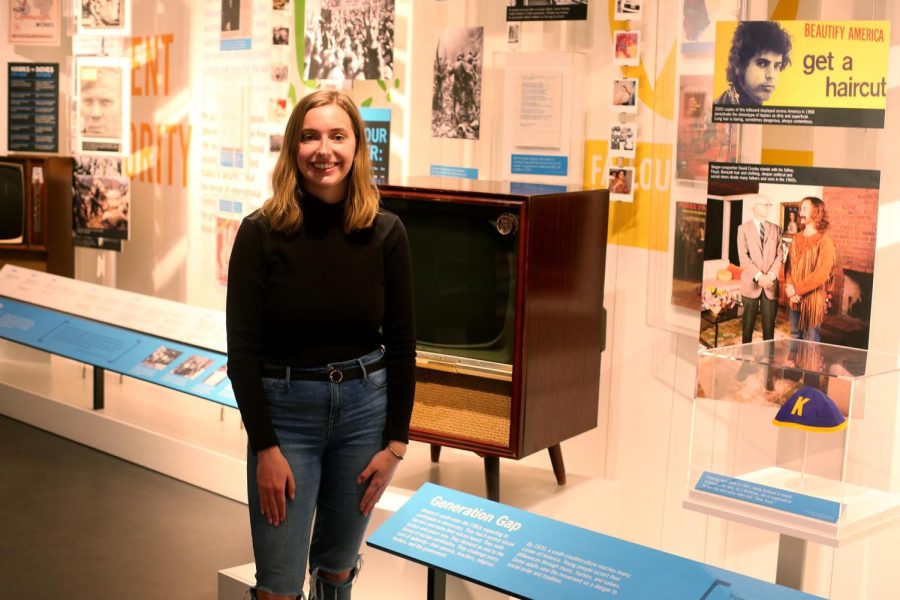Janet Malaime
When Janet Malaime became the president of the May 4th Task Force in 2016, one of her goals was to make the group more reflective of activism happening in the present day. That idea was reflected when Malaime got Sameria Rice to speak at the May 4 commemoration in 2016.
“I had people calling my phone to argue, people sending me nasty emails,” Malaime said with a laugh. “I knew the whole time that what I was doing was the right thing.”
Prior to her speech, student activists from all over campus clad in black sat in front of the stage to protect Rice.
“I think that made it very clear that I was a part of something that could a force of good in the world,” she said.
Malaime is a 2017 graduate of Kent State and alumni member of the May 4th Task Force. Malaime, who says she knew she wanted to stay with the Task Force upon graduation is the lifeblood of the Task Force. The respect she garners is palpable at meetings. When she speaks, the room grows quiet since it’s clear she’ll do whatever is best for the group. She also serves the Task Force in numerous different ways, serving as a veteran voice who helps keep the meetings on track while also helping new members get ingrained in the group.
“It took me a while, even as president, to feel like I knew what I was doing,” Malaime said. “I just try to help everyone.”
As the Task Force has gone through a period of uncertainty through its future, Malaime has been one of the most vocal voices at the meetings, speaking up for what she does (or doesn’t) believe in.
In addition to making the group more involved in current activism, Malaime’s other goal as president was to make the group more open to women and children. And while she admits the group can still go further, the Task Force’s diversity is evident in their meetings.
Malaime found out about the Task Force during her freshman year at Kent State when she went on a walking tour led by Alan Canfora, and she’s been a member since.
“It was really cool to see that there was a group working toward keeping it alive because it let me be a part of history,” Malaime said.
Benjamin Smith
Benjamin Smith also found out about the Task Force through the May 4 and Its Aftermath class. Smith, an alumni member of the Task Force who graduated in 2017 with a degree in Peace and Conflict Management, first got involved in the spring semester of 2016.
Smith said that his background in conflict management allowed him to wear many hats with the Task Force.
“I bring my conflict management background and the knowledge from all the reading I’ve done at May 4,” Smith said. “I’m also comfortable speaking so I’ve gone to classes numerous to speak about the Task Force. I’ve given tours to groups before.”
Despite his background in public speaking, Smith is more of a reserved figure at the meetings, electing to sit back and observe the discussions happening in front of him. When Smith does speak, however, people listen. He’s a respected figure in the group who is passionate about the Task Force’s place in the University in present day.
This makes sense considering Smith was a student activist during his time as an undergraduate at Kent State.
“(My role now) is a lot less of the student activist side of things and more connecting with the community,” Smith says.
As the 50th anniversary creeps closer and all of the fanfare surrounding it begins to enter the daily life of the Task Force, Smith has an idea of what he wants the main message to be.
“Our biggest priority is to keep May 4 what it’s always been about which is civil rights and social justice issues,” he said. “We need to make sure that isn’t lost in the fanfare of the 50th commemoration and onward.”
Smith’s background with the group, along with what he’s learned through his major, makes him the perfect person to help with a group that can sometimes butt heads.
“Good conflict resolution skills and patience are the biggest things (I bring),” Smith said. “There’s a lot of conflict that arises in a group that spans so many generations.”
Henry Palattella is the sports editor. Contact him at [email protected].



